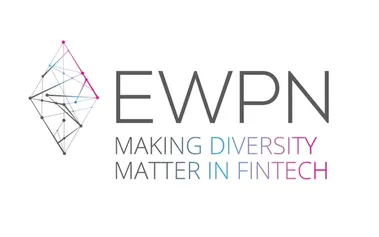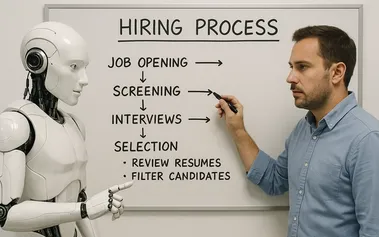I still remember the moment I realised I'd been getting leadership completely wrong. After months of projecting unwavering confidence about a strategic direction that wasn't working, I finally admitted to my team that I'd made the wrong call. Instead of losing respect, something unexpected happened. The room exhaled collectively, and suddenly everyone started contributing ideas they'd been holding back.
Most leaders fear that admitting struggles will undermine their authority. We've been conditioned to believe that showing any crack in our armour invites mutiny. But here's what 25 years of leadership experience has taught me: the opposite is true. Strategic vulnerability doesn't weaken your leadership. It strengthens it in ways that rigid invulnerability never could.
The challenge isn't whether to be vulnerable as a leader. It's learning how to do it in ways that build trust rather than create anxiety.
The Strength Hidden in Admitting You Don't Know
The traditional leadership playbook tells us to project confidence at all times. But here's what happens when you follow that advice religiously: your team starts walking on eggshells, innovation drops because people fear making mistakes, and you exhaust yourself maintaining a facade that helps no one.
Teams actually crave honest leaders. When you pretend to have all the answers, you create anxiety rather than confidence. Your people start wondering what else you're not telling them, and they become paralysed by the fear of disappointing someone who seemingly never struggles.
Think about the last time you worked for someone who admitted they didn't know something. Chances are, it didn't make you question their competence. It made you want to help solve the problem.
Why Teams Crave Honest Leaders
When leaders acknowledge uncertainty, something powerful happens in team dynamics. The pressure to perform perfectly evaporates, replaced by collective problem-solving energy. Teams perform better when they're not constantly managing up to protect their leader's ego.
I've watched this play out countless times. The leader who says "I'm not sure about this decision. What are you seeing that I might be missing?" gets better information and more creative solutions than the one who declares "This is definitely the right approach" whilst privately harbouring doubts.
The Trust Equation That Changes Everything
Here's the counterintuitive truth: vulnerability plus competence equals stronger team trust. When you admit knowledge gaps whilst maintaining your commitment to finding solutions, you actually build more credibility than the leader who pretends to know everything.
Consider a leader navigating their first major organisational restructure. They could pretend they've done this dozens of times, or they could say: "This is my first time leading a change this significant. I've been researching best practices and talking to other leaders who've been through this. I'll make mistakes, but I'm committed to learning quickly and keeping you informed along the way."
Which leader would you rather follow through uncertainty?
The Framework for Strategic Vulnerability
There's a crucial difference between being vulnerable and being unprofessional. Strategic vulnerability means sharing your growth edges and learning challenges whilst maintaining your commitment to finding solutions. It's about being human without being helpless.
The key lies in timing and context. Share struggles that your team can learn from or contribute to solving. When you admit you're learning something new, immediately follow up with your plan to get there and how the team can be part of the solution.
This isn't about emotional dumping or making your team your therapist. It's about creating an environment where everyone can acknowledge what they don't know and work together to figure it out.
What to Share and When
The "growth edge" principle works well here: share current learning challenges that are relevant to your team's work. If you're struggling to understand a new market your company is entering, that's worth sharing. If you're having relationship problems at home, that's not.
Timing matters enormously. Share vulnerabilities when your team has the emotional bandwidth to hear them and when the context makes sense. Don't announce your learning challenges in the middle of a crisis when people need you to be the steady hand.
The best leaders I know have mastered the art of being transparent about their professional development needs whilst maintaining clear boundaries around personal issues.
Maintaining Authority While Being Human
The fear that vulnerability undermines authority stems from a fundamental misunderstanding of what authority actually is. Real authority comes from your ability to help your team succeed, not from pretending you never struggle.
When you handle a significant project setback, you have two choices. You can downplay the problem and scramble privately to fix it, or you can gather your team and say: "This didn't go as planned, and I take responsibility for that. Here's what I think went wrong, here's what we're going to do differently, and here's how each of you can help us get back on track."
The second approach doesn't diminish your authority. It demonstrates it. You're showing that you can handle difficult situations with honesty and decisive action.
Building This Into Your Leadership Practice
Like any leadership skill, strategic vulnerability requires practice. Start small and build your comfort level gradually. You don't need to transform overnight from stoic leader to completely open book.
Begin with low-stakes situations where you can admit uncertainty or share a learning challenge. Pay attention to how your team responds. Most leaders are surprised by the positive reaction they get when they drop the perfect facade.
The goal isn't to become more vulnerable for its own sake. It's to create an environment where everyone feels safe to acknowledge what they don't know, ask for help, and learn from mistakes.
Small Steps That Create Big Changes
Here are practical ways to begin:
- Admit when you don't understand something in meetings. "Can you help me understand that better?" is a powerful phrase that signals you value learning over appearing knowledgeable.
- Create regular opportunities for reflection and learning. Weekly team retrospectives where you share something you've learned or a mistake you made normalises this kind of openness. When team members see you treating failures as learning opportunities, they'll start doing the same.
- Build mistake post-mortems into your team culture. Focus on systems and processes rather than individual blame, and always start by examining your own role in what went wrong.
Reading Your Team's Readiness
Not every team is ready for the same level of transparency immediately. Some teams have been conditioned by previous leaders to expect perfection and may initially interpret vulnerability as incompetence.
Signs your vulnerability is working well:
- Increased innovation and creative problem-solving
- More questions being asked in meetings
- Team members admitting their own uncertainties
- A general sense that people are bringing their whole selves to work
Warning signs to scale back:
- Increased anxiety or stress in team members
- Team seeming to lose confidence in your direction
- Over-dependence on you for emotional support
- Decreased performance or decision-making paralysis
Cultural context matters too. Some organisational environments or regional cultures may require a more gradual approach to leader vulnerability. Adjust your pace accordingly whilst maintaining your commitment to authentic leadership.
The Courage to Grow in Public
Vulnerability as a leader isn't about weakness. It's about having the courage to grow in front of others. It's choosing learning over looking good, and authenticity over artificial perfection.
This week, find one small way to acknowledge something you don't know or share a professional challenge you're working through. Notice how your team responds. Most leaders discover that their people have been waiting for permission to be human too.
The strongest leaders aren't those who never fall down. They're the ones who show others how to get back up.




